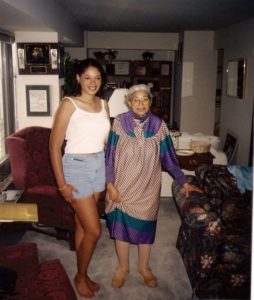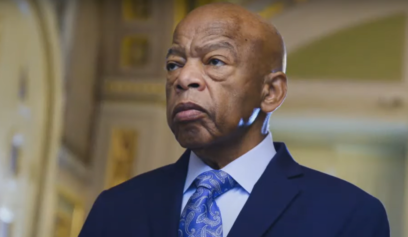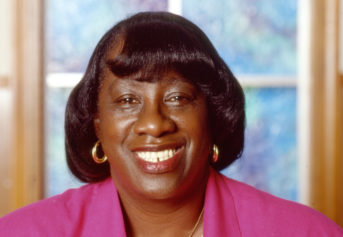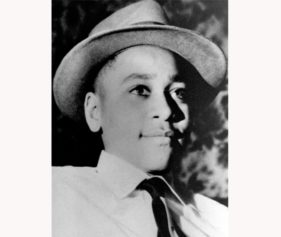
Urana McCauley (left) said she didn’t realize how important her aunt was until a 1995 NAACP event. (Image courtesy of Urana McCauley)
On what would’ve been Rosa Parks’ 105th birthday, her niece is setting the record straight about who the civil rights icon really was — and it’s a far cry from the “quiet seamstress narrative” we learned growing up.
In a piece published to Shonadland.com last week, Urana McCauley wrote of her excitement at hearing Oprah Winfrey tell the story of Alabama woman Recy Taylor, who was abducted and raped by six white men in 1944. Parks, a young activist at the time, was appointed by the NAACP to investigate Taylor’s case in her fight for justice.
Unbeknownst to many, the former seamstress was a freedom fighter well before she became the face of the Montgomery bus boycott, her niece explained.
“It was also emotional for me to hear Oprah’s words because she gave people the chance to see that Rosa Parks — my Auntie Rosa — was not just a tired old lady who sat down on a bus one day,” McCauley wrote.
“I also pay her my respects by refusing to let her legacy be turned into a caricature,” she added. “I believe her story is more relevant than ever because she and people like her laid a foundation so that women today can be more vocal, can run for office, can demand equal rights and equal pay, and say we don’t have to be harassed.”
McCauley said she didn’t realize how important of a person her aunt was until an NAACP event in 1995 where people were practically fawning over her. After that event, she said she began prodding her aunt for details about her experiences and what she’d seen and endured as a young activist. Since childhood, Parks explained that she was taught Black folks couldn’t be vocal or resistant, as they weren’t allowed those privileges like whites.
However, it was her upbringing by her grandfather, Sylvester Edwards, who lit a fire in her, teaching her all about the key figures of Black resistance — from Harriet Tubman to Marcus Garvey and everyone in between, according to her niece.
McCauley went on to dispel a few myths about her aunt, such as rumors she wasn’t truly Black and that the bus boycott was staged for the media. For her, it was high time to put those claims to bed.
” … Maybe you have seen that famous picture of my aunt getting arrested and the man fingerprinting her — well, that’s not even from December 1, 1955,” McCauley said. “It’s from the second time she was arrested. (Yes, she got arrested more than once.)”
“By the time that photograph was taken, word had gotten out across the country that Montgomery had started a bus boycott. So that’s when the media showed up to take a picture,” she continued.
McCauley explained that her aunt didn’t even mean to get on the bus that day, as she’d been avoiding a particular driver for years. She’d already paid her fare by the time she realized her mistake, so she went ahead and sat down, later refusing to give up her seat.
McCauley said once word had gotten out about what had happened to Parks, people had a bit more courage speak up and speak out than they did before.
“I know people might still try to belittle my Auntie Rosa by saying, ‘Oh she was just a little seamstress.” But that “little seamstress” is proof that you can be anything out here and still make changes in your community,” she wrote. “My aunt felt passionate about civil rights — it was a passion she felt in her soul, and we all have to tap into that.”
” … We can all do a little thing and the ripple effect of it can go a long way.”


